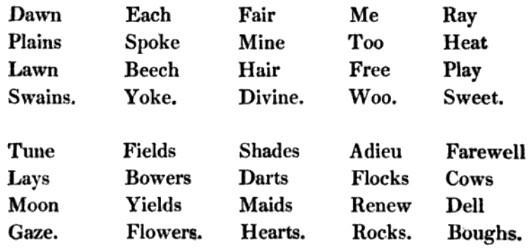On April 1, 1990, an anonymous verse was posted to the comp.lang.perl newsgroup on Usenet. It was written in the programming language Perl 3:
BEFOREHAND: close door, each window & exit; wait until time.
open spellbook, study, read (scan, select, tell us);
write it, print the hex while each watches,
reverse its length, write again;
kill spiders, pop them, chop, split, kill them.
unlink arms, shift, wait & listen (listening, wait),
sort the flock (then, warn the "goats" & kill the "sheep");
kill them, dump qualms, shift moralities,
values aside, each one;
die sheep! die to reverse the system
you accept (reject, respect);
next step,
kill the next sacrifice, each sacrifice,
wait, redo ritual until "all the spirits are pleased";
do it ("as they say").
do it(*everyone***must***participate***in***forbidden**s*e*x*).
return last victim; package body;
exit crypt (time, times & "half a time") & close it,
select (quickly) & warn your next victim;
AFTERWORDS: tell nobody.
wait, wait until time;
wait until next year, next decade;
sleep, sleep, die yourself,
die at last
Because of the large number of English words that are used in the Perl language, the poem can actually be compiled as legal code and executed as a program. (It exits on line one, reaching the function exit, producing no output.)
The poem was attributed to “a person who wishes to remain anonymous,” but new “Perl poems” are regularly submitted to the programming community at PerlMonks.

